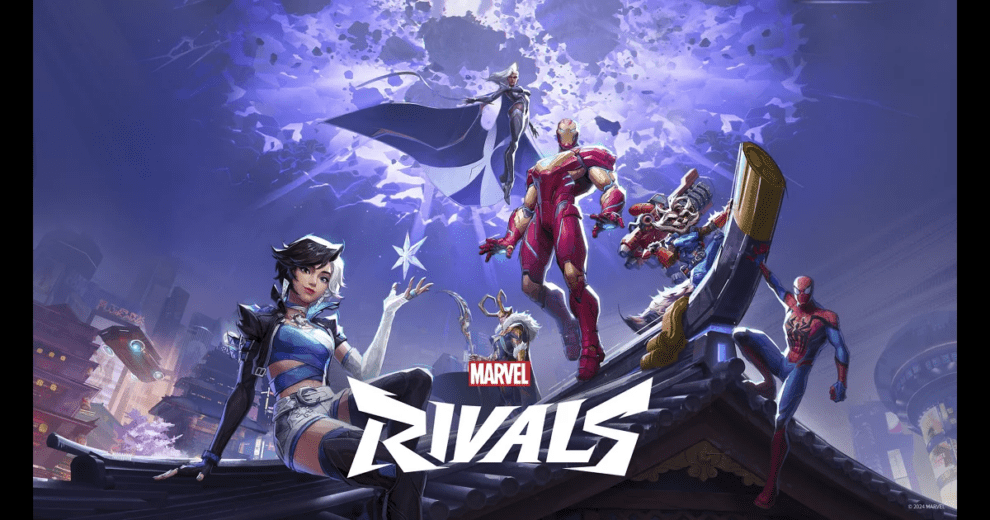Despite amassing over 40 million players since its launch, Marvel Rivals finds itself at the center of a growing controversy following layoffs within its US development team. Chinese publisher NetEase has denied allegations that it is abandoning its Western studios, though recent cuts have raised eyebrows and sparked concerns about the future of international game development amid shifting global dynamics.
In its latest financial report, NetEase celebrated Marvel Rivals‘ success, highlighting its rapid ascent to the top of Steam’s global sellers chart shortly after release and attracting over 10 million registered users within just 72 hours. The free-to-play hero shooter quickly became a sensation, blending fast-paced combat with beloved Marvel characters in a format tailored for modern audiences. Yet, this impressive performance hasn’t shielded the game—or its developers—from turbulence behind the scenes.
Layoffs Spark Outcry Among Developers
Earlier this week, news broke that an unspecified number of employees from Marvel Rivals’ US development team had been laid off. Game director Thaddeus Sasser took to social media to express his frustration, writing, “This is such a weird industry. My stellar, talented team just helped deliver an incredibly successful new franchise in Marvel Rivals for NetEase Games… and were just laid off!” His candid statement resonated widely, drawing attention to the often precarious nature of careers in game development, even when projects achieve commercial success.
NetEase described the layoffs as a “difficult decision” aimed at “optimizing development efficiency,” but insiders suggest there may be more at play. According to a report by VentureBeat, sources claim the company is losing enthusiasm for making games outside of China due to the high costs associated with hiring US-based talent. This sentiment aligns with broader trends showing the rising capabilities of Chinese studios, exemplified by titles like Game Science’s Black Myth: Wukong , which demonstrates AAA-level production values entirely within China.
The timing of these layoffs also coincides with heightened tensions between the US and China, including ongoing trade disputes that could further complicate cross-border operations in the gaming industry. While NetEase insists its decisions are based purely on business evaluations, some observers see geopolitical factors influencing corporate strategies.
A Strategic Shift or Retreat?
In response to mounting speculation, NetEase issued a formal statement denying any intention to abandon its global expansion plans. “As far as overseas business efforts are concerned, NetEase has not wavered in its global expansion plans,” the company declared. It reiterated its commitment to a “two-pronged” approach combining self-research and investments to explore international markets, pointing to recent successes like Once Human and Marvel Rivals . Looking ahead, NetEase teased an ambitious slate of upcoming titles, including FragPunk , Ananta , and others spanning various genres.
However, the company acknowledged a “scaling down” of certain studios, citing business evaluations as the sole driver. This adjustment led to the closure of several high-profile ventures, including Mass Effect veteran Mac Walters’ Worlds Untold, Halo Infinite head of design Jerry Hook’s Jar of Sparks, and Just Cause creator Christofer Sundberg’s Liquid Swords. Despite these setbacks, NetEase emphasized that its studios in North America, the UK, Spain, and Japan continue to operate and refine their projects.
To address concerns about favoritism, NetEase implemented a standardized evaluation process applicable to all its studios globally. We are very open and aim to leverage our company’s strengths and accumulated expertise to support all developers,” the statement read. This vision guides our decisions, ensuring fairness across domestic and overseas teams.
When questioned about the impact of the US-China trade war, NetEase maintained that its choices remain grounded in business considerations rather than external pressures. “While we are mindful of developments in international trade, our decisions have been based solely on business evaluations,” the company clarified. We highly respect our gaming community in the US and value their passion for our games.
Broader Implications for Chinese Publishers
The situation surrounding NetEase raises questions about whether other Chinese companies might follow suit, scaling back their Western operations. All eyes are now on Tencent, the world’s largest gaming conglomerate, which recently faced scrutiny after being labeled a military company by the US government. Though Tencent vowed legal action in response, its stance toward foreign investments remains closely watched.
According to gaming analyst firm Niko Partners, current trends reflect a recalibration rather than a retreat. While geopolitical concerns and cost pressures after two challenging years for the global video game industry are driving Chinese game companies to re-evaluate their US operations, this does not signal a withdrawal from operating and investing in studios overseas,” the firm noted. Instead, Chinese publishers appear to be adopting a more selective and strategic approach, prioritizing projects with clear market potential—a shift driven by fiscal responsibility and long-term viability.
Continued Success Amid Uncertainty
Despite internal challenges, Marvel Rivals continues to thrive, with season 1.5 launching tomorrow and bringing fan-favorite characters like The Thing and Human Torch into the fray. Developer feedback has shown responsiveness to player concerns, as evidenced by a recent reversal on plans to reset player ranks mid-season. Such adjustments underscore NetEase’s willingness to engage with its audience and adapt to evolving expectations.
Meanwhile, NetEase boasts additional achievements in its portfolio, such as the swift rise of Where Winds Meet , a wuxia action game that surpassed 3 million downloads within four days of its PC debut in China. With plans for a global release later this year, the title further cements NetEase’s reputation for crafting culturally resonant experiences with broad appeal.
CEO William Ding expressed pride in the company’s accomplishments, stating, “We boldly pushed the boundaries of innovation once again in 2024, delivering groundbreaking gaming experiences that captivated players worldwide.” He highlighted how fresh enhancements in design, storytelling, and immersive content revitalized legacy franchises while expanding into new genres. Moving forward, NetEase aims to collaborate with top talent and strategic partners to shape the next wave of gaming trends.
What Lies Ahead?
For Marvel Rivals and its creators, the road ahead remains uncertain yet promising. As NetEase navigates the complexities of global expansion, balancing financial prudence with creative ambition will prove crucial. Fans eagerly await what season 1.5 holds, hopeful that the magic of Marvel Rivals endures despite organizational changes.
More broadly, the gaming industry must grapple with the implications of shifting power dynamics between Eastern and Western developers. Will Chinese publishers continue to invest heavily in international markets, or will they pivot toward homegrown talent and resources? Only time will tell, but one thing is clear: the era of seamless globalization in gaming may be giving way to a landscape defined by calculated pragmatism and regional specialization. For players and creators alike, this transition promises both opportunities and challenges in equal measure.
















Add Comment